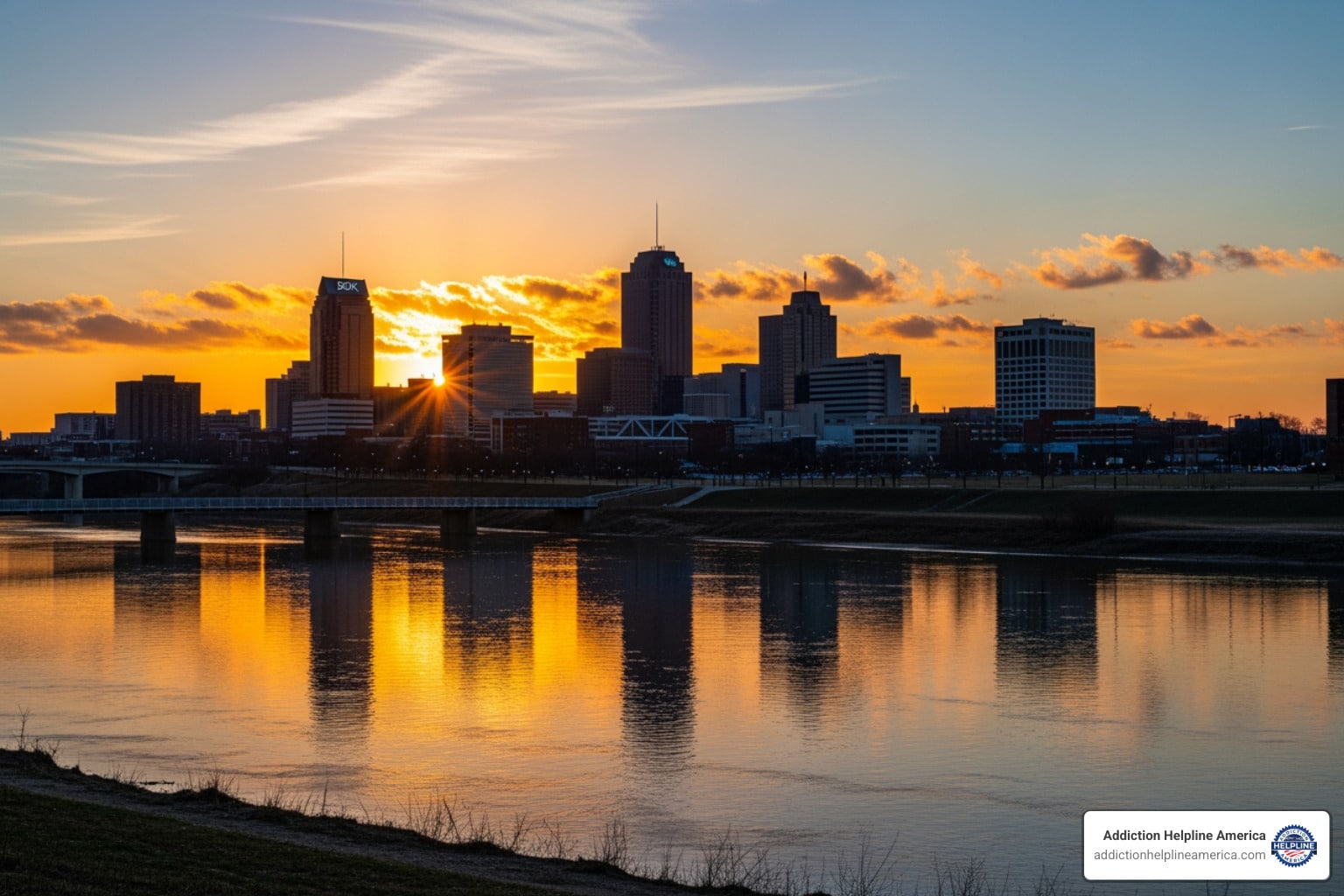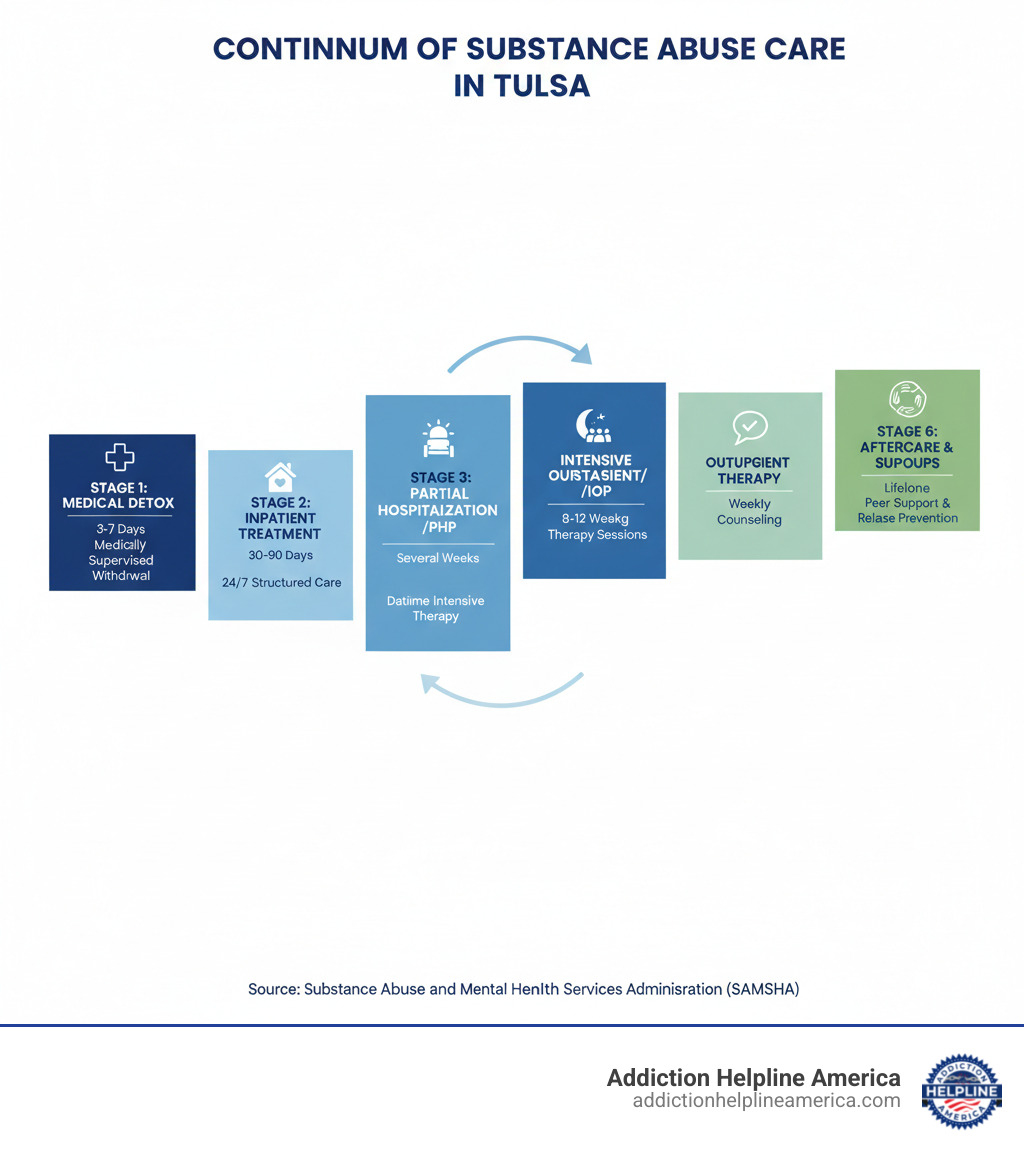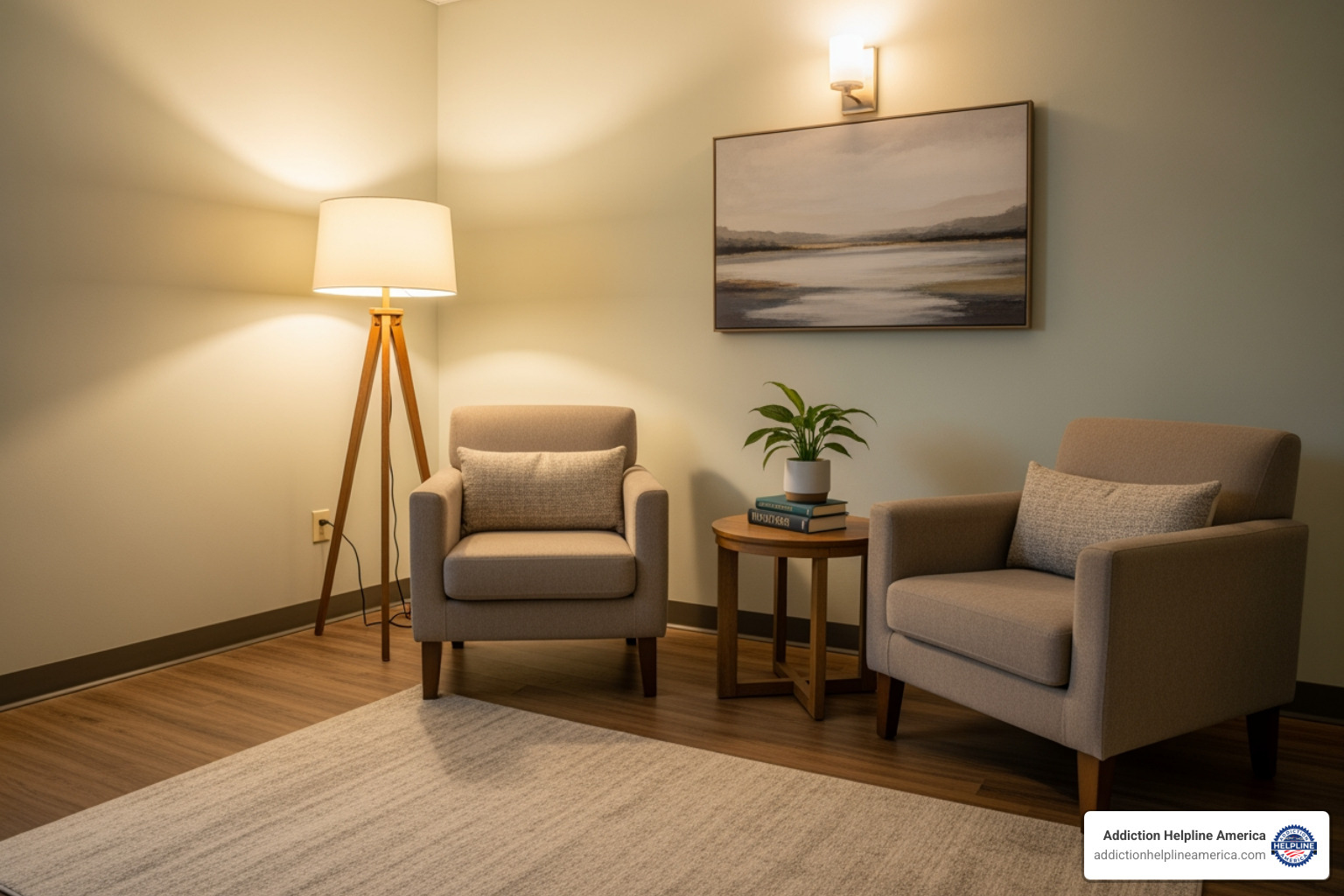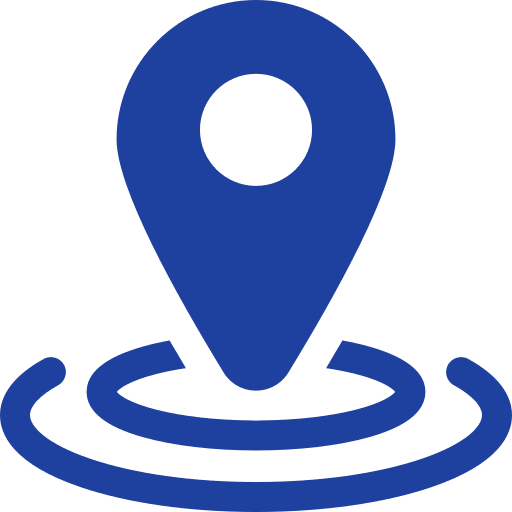
Why Understanding Substance Abuse Treatment in Tulsa Matters
Substance abuse Tulsa is a critical challenge, but if you or a loved one are searching for help, you should know that recovery is possible. Tulsa offers a comprehensive range of evidence-based programs designed to meet you where you are.
Quick Answers for Finding Help in Tulsa:
- Treatment Types: Medical detox, inpatient/outpatient rehab, IOP, PHP, dual diagnosis, and medication-assisted treatment (MAT).
- First Contact: Call the 988 Lifeline for crisis support or ODMHSAS for treatment guidance.
- Payment Options: Most insurance, Medicaid, Medicare, sliding scale fees, and state-funded programs are available.
- Specialized Care: Programs for adolescents, women, veterans, LGBTQ+ individuals, and criminal justice clients.
- How to Start: Call a treatment center for a confidential assessment or use online screening tools.
The statistics are sobering: Oklahoma saw a 418% increase in drug overdoses in 2022, and Tulsa County has one of the nation’s highest overdose hospitalization rates. But treatment for substance use disorder works. The city’s resources range from the Tulsa Sobering Center, which diverts people from jail to treatment, to specialized residential programs for mothers with children.
Because over half of people with substance use disorder also have mental health challenges, many Tulsa facilities offer dual diagnosis treatment to address both conditions simultaneously for better outcomes.
This guide will help you understand your options and find the right program. At Addiction Helpline America, we provide confidential, 24/7 guidance to connect you with life-saving substance abuse Tulsa treatment resources. Our team can help you take that crucial first step.

Related content about Substance abuse Tulsa:
Understanding the Landscape of Substance Abuse in Tulsa
If you’re facing substance abuse Tulsa challenges, know that you’re not alone. A coordinated network of state agencies, local health departments, and community coalitions is working to create pathways to recovery.
The Oklahoma Department of Mental Health and Substance Abuse Services (ODMHSAS) is the state’s central hub for prevention, treatment, and education resources. You can explore their services at Oklahoma Department of Mental Health and Substance Abuse …. Locally, the Tulsa Health Department leads prevention initiatives, while community groups like the Coalition Against Prescription and Substance Abuse of Tulsa (CAPSAT) and the STOPDUI Task Force implement real-world strategies like public education and policy advocacy.
The Causes of Addiction are complex, often involving genetics, environment, trauma, and mental health. Recognizing these roots is key to effective treatment.

The Role of Public Health and Prevention
Prevention is a critical part of addressing substance abuse. In Tulsa, Regional Prevention Coordinators work with youth and families to address substance use before it starts. Key efforts include:
- Prescription Drug Misuse: CAPSAT educates the public on secure medication storage and disposal and promotes the use of Narcan (overdose-reversal medication).
- Opioid Prevention: Initiatives teach safer use and disposal of prescription opioids and provide access to free overdose prevention kits with Narcan and fentanyl test strips.
- DUI Prevention: The STOPDUI Task Force works to reduce alcohol-related traffic incidents through public awareness and law enforcement collaboration.
These programs are vital to reducing the number of people who need treatment and making Tulsa a safer community.
Understanding Co-Occurring Disorders
More than half of people with substance use issues also have a mental health issue, a connection well-documented by the Substance Abuse and Mental Health Services Administration (SAMHSA). This is often due to self-medication, where individuals use substances to cope with symptoms of anxiety or depression. While it may offer temporary relief, this cycle ultimately worsens both conditions.
This is known as a dual diagnosis or co-occurring disorders. Effective treatment must address both the addiction and the underlying mental health condition simultaneously. You cannot successfully treat one without the other. Fortunately, many Tulsa facilities specialize in this integrated care, offering comprehensive plans to help individuals overcome both challenges. Chemical dependency is a complex disease, and when combined with mental health conditions, compassionate, expert care is essential.
Types of Substance Abuse Treatment Programs in Tulsa
When seeking help for substance abuse Tulsa, you’ll find a complete continuum of care, not a one-size-fits-all solution. Programs are built around your specific needs, with licensed therapists creating individualized plans. People can move through different levels of care as they progress in recovery.

Medical Detox: The First Step to Safety
Before recovery can begin, your body must safely eliminate dependent substances. Medical detox provides a safe, supervised environment for this process. Withdrawal from substances like alcohol, opioids, and benzodiazepines can be dangerous or even life-threatening without medical oversight. In a detox facility, professionals monitor your health 24/7 and can provide medications to manage withdrawal symptoms, making the experience safer and more comfortable, which sets you up for success in the next phase of treatment.
Inpatient and Outpatient Rehab: Choosing the Right Level of Care
After detox, the next step is choosing a level of care. The two main options are inpatient (residential) and outpatient programs.
Inpatient rehab involves living at a treatment facility for 30-90 days. This 24/7 structured environment removes you from daily triggers and provides constant medical and therapeutic support. It’s ideal for severe addiction, co-occurring disorders, or an unsupportive home environment.
Outpatient programs allow you to live at home while attending therapy sessions several times a week. This flexibility is suited for milder addictions or for those with work and family commitments. Tulsa offers various intensities, including Intensive Outpatient Programs (IOPs) and Partial Hospitalization Programs (PHPs). Outpatient care is also a common step-down from inpatient treatment.
For a deeper look at these options, see our guide on Inpatient vs Outpatient Rehab.
| Feature | Inpatient Rehab | Outpatient Rehab |
|---|---|---|
| Structure | 24/7 supervised, highly structured environment | Flexible schedule, allows living at home |
| Time Commitment | Typically 30-90 days (can be longer) | Several hours a week, over weeks or months |
| Cost | Generally higher due to residential care | Generally lower |
| Medical Support | Constant medical and psychiatric care available | Scheduled medical appointments, less immediate care |
| Ideal Candidate | Severe addiction, co-occurring disorders, unstable home environment, need for removal from triggers | Mild to moderate addiction, stable home environment, work/school commitments |
Comprehensive Recovery Services
Effective substance abuse Tulsa treatment addresses the whole person, not just the addiction.
- Dual Diagnosis Treatment: Crucial for the majority who struggle with both addiction and mental health issues. These programs treat both conditions simultaneously, helping you understand symptoms and develop healthy coping skills.
- Medication-Assisted Treatment (MAT): This evidence-based approach combines FDA-approved medications with therapy. In Tulsa, MAT services use medications like buprenorphine and methadone for opioid dependence and Antabuse for alcohol use disorder, significantly improving recovery outcomes. Learn more on our Treatment: Medication Assisted page.
- Relapse Prevention Planning: A core component of any good program, this involves working with therapists to identify personal triggers, build coping mechanisms, and create a concrete plan to maintain sobriety.
Finding the Right Fit: Specialized Programs in Tulsa
Effective recovery is not one-size-fits-all. Tulsa’s treatment centers offer custom approaches and demographic-specific care to meet people’s unique needs. Finding a program that understands your specific situation can make all the difference.

Programs for Adolescents and Young Adults
Teenagers and young adults face unique challenges, including peer pressure and developmental changes. Specialized programs in Tulsa address these factors directly.
Services like Palmer Addiction Recovery Services’ Adolescent Counseling and YouthCare of Oklahoma’s outpatient treatment offer teen-focused therapy that addresses identity, family dynamics, and social pressures. Many programs include educational components on how substances affect the developing brain and offer school-based services to ensure recovery doesn’t disrupt education. For more information, see our guide on Adolescent Substance Abuse.
Programs for Women, Veterans, and Other Groups
Substance abuse Tulsa treatment centers provide care custom to specific populations:
- Women’s Programs: Centers like Resonance Center for Women create safe environments to address gender-specific issues like trauma and childcare. A standout service is the residential treatment for mothers with children at the Tulsa Women and Children’s Center, which allows mothers to bring their children into treatment, removing a major barrier to seeking help.
- Veterans: The Eastern Oklahoma VA Health Care System offers veteran-specific care, often integrating treatment for PTSD with substance abuse services, provided by professionals who understand military experiences.
- LGBTQ+ Affirming Programs: Many Tulsa centers provide inclusive care that recognizes the unique challenges faced by LGBTQ+ individuals in recovery.
- Justice-Involved Individuals: The Tulsa Sobering Center diverts people with public intoxication from jail to a safe environment with access to counseling. Other programs, like those at Resonance Center for Women, may serve as part of court-ordered treatment to help individuals rebuild their lives.
At Addiction Helpline America, we know that the right program fit is crucial for lasting recovery.
Navigating Costs and Taking the First Step for Substance Abuse in Tulsa
Concerns about cost and how to begin the process shouldn’t be barriers to getting help. Substance abuse Tulsa treatment is more accessible than you might think, and clear first steps are available.
How to Pay for Substance Abuse Tulsa Treatment
While the average cost of intensive treatment can seem high, outpatient services are significantly less, and numerous payment options exist:
- Private Health Insurance: Most plans from major providers like Aetna, Blue Cross Blue Shield, and UnitedHealth Group cover addiction treatment. Contact your provider or let us help you verify your benefits.
- Medicaid and Medicare: Many Tulsa rehabs accept Medicaid for those with limited income. Our Rehab Centers That Accept Medicaid guide can help. Medicare also provides coverage.
- Sliding Scale Fees: Many facilities adjust costs based on your income.
- State-Funded Programs: Oklahoma’s ODMHSAS funds programs that may offer free or reduced-cost services. Explore these in our Free Rehab Tulsa Complete Guide.
Other options include self-payment, military insurance (TRICARE), and financial aid. Always ask a treatment center about payment options.
How to Start the Treatment Process
Taking the first step is the hardest part. The process usually begins with an initial assessment to determine the right level of care.
- Use Confidential Screenings: Start with a free, private screening from home through Mental Health America’s online tools. This can help you decide if it’s time to seek a professional evaluation.
- Call a Helpline for Guidance: Our team at Addiction Helpline America offers free, confidential guidance to connect you with the right program. We’re here to listen and help you steer your options. See more at our Addiction and Rehab Hotlines page.
- Contact a Center Directly: Many Tulsa centers, like Parkside (918-588-8888), have 24/7 assessment teams ready to help without an appointment.
Crisis Resources for Substance Abuse in Tulsa
For immediate help with a substance abuse Tulsa crisis, use these resources:
- 988 Mental Health Lifeline: Call or text 988 anytime for 24/7 confidential crisis support from a trained professional.
- Tulsa Sobering Center: An alternative to jail for public intoxication, this 24/7 facility provides a safe place to recover and offers access to counseling and rehab programs.
- Naloxone (Narcan) Availability: Free overdose prevention kits containing Narcan and fentanyl test strips are available through the Tulsa Health Department (email wellness@tulsacc.edu). Knowing how to use Narcan can save a life.
- Safe Medication Disposal: Prevent misuse by disposing of unneeded medications at Tulsa’s year-round drop-off sites for medication disposal.
Life After Treatment: Support Groups and Staying Sober in Tulsa
Completing a treatment program is a major achievement, but recovery is a lifelong journey. Tulsa has a vibrant recovery community to help you stay connected and sober for the long haul. You don’t have to do it alone.

Peer Support Groups
Peer support groups provide a judgment-free space to connect with others who understand your journey. They are vital for building a sober social network. Tulsa offers a variety of options:
- Alcoholics Anonymous (AA): For recovery from alcohol addiction.
- Narcotics Anonymous (NA): A 12-step program for drug addiction.
- Marijuana Anonymous (MA): For those with cannabis dependence.
- SMART Recovery: A science-based, self-empowerment approach.
- Gamblers Anonymous (GA): For gambling addiction, which can co-occur with substance abuse Tulsa.
The Oklahoma Network of Care is a great resource for finding local groups and agencies.
Resources for Families and Loved Ones
Addiction affects the entire family. Healing these relationships is a key part of recovery.
- Al‑Anon: A support group for friends and family of those with alcohol problems. It helps loved ones set healthy boundaries and find peace.
- Family Therapy: Many Tulsa treatment centers offer family therapy to repair relationships, improve communication, and address family dynamics related to addiction.
- Codependency Education: Learning to address codependent behaviors like enabling is crucial for creating healthier family relationships.
Developing a Relapse Prevention Plan
A strong relapse prevention plan is essential for navigating the challenges of recovery. A good plan includes:
- Identifying Triggers: Recognizing the people, places, feelings, and situations that put you at risk.
- Building Coping Skills: Developing healthy ways to manage stress and cravings, such as exercise, meditation, or calling a sponsor.
- Creating Routine and Healthy Habits: A structured daily routine provides stability. Prioritizing sleep, nutrition, and activities that bring you joy helps build a life you don’t want to escape from.
Our Staying Sober Tips guide offers more practical strategies. A relapse is not a failure but a sign to adjust your plan and seek more support.
Your Path to Recovery in Tulsa Starts Today
If you’ve read this guide on substance abuse Tulsa resources, you’ve already taken a powerful step toward finding help. Remember these key takeaways: Tulsa has a complete network of care, from medical detox and inpatient rehab to flexible outpatient programs and long-term support groups.
Specialized programs are available for adolescents, veterans, and mothers with children, ensuring your care is personalized. Dual diagnosis and medication-assisted treatments are available to address co-occurring mental health conditions and improve outcomes.
Help is accessible. Financial barriers can be overcome with insurance, Medicaid, Medicare, sliding scale fees, and state-funded options. Crisis resources like the 988 Lifeline and the Tulsa Sobering Center are available 24/7.
At Addiction Helpline America, we specialize in connecting people with life-changing treatment. We understand that navigating insurance and choosing a program is overwhelming. That’s why we’re here: to provide free, confidential, personalized guidance to connect you with the right recovery program from our vast network.
Recovery is happening every day in Tulsa. You can be one of those success stories. Don’t wait. Reach out today and let us help you find your path forward.
Our helpline is 100%
free & confidential
If you or someone you care about is struggling with drug or alcohol addiction, we can help you explore your recovery options. Don’t face this challenge alone—seek support from us.
Programs
Resources
Will my insurance
cover addiction
treatment?
We're ready to help
Find the best
drug or alcohol treatment
center
Are you or a loved one struggling with addiction? Call today to speak to a treatment expert.












